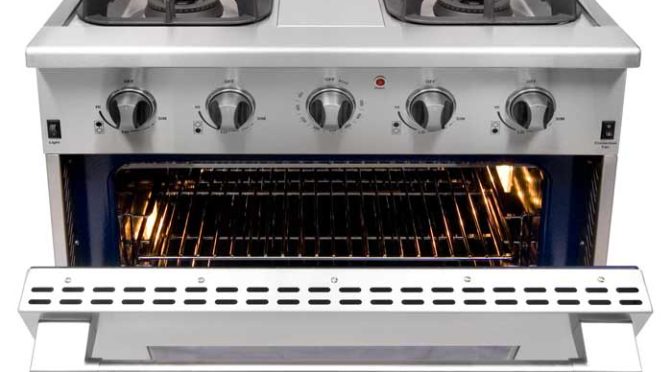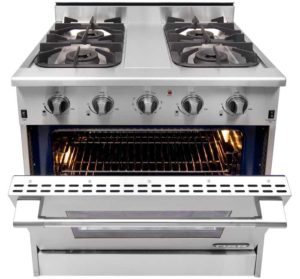
If you’re choosing a floor for your kitchen, it helps to know what distinguishes some surfaces (e.g., more traditional kitchen floors) from others (e.g., hardwood floors in kitchens). Similarly, if you want to choose the right oven for your kitchen, it helps to know more about the appliances themselves. The other day we compared freestanding ranges to wall ovens; today, we’ll answer the most frequently asked questions about convection ovens, including what exactly they are, how they differ from regular or conventional ovens, if they make a difference in cooking, and how to use them effectively.
What is a convection oven, and how does it differ from a conventional oven?
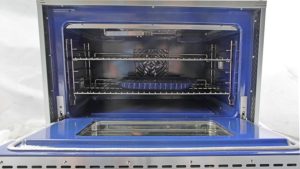
A convection oven is essentially a conventional oven with one crucial difference: it includes a fan to deal with cooking issues related to hotter and cooler spots in an oven, as well as the uneven cooking rates and temperatures that result from internal temperature variations. The fan addresses these issues by circulating the warm air within the oven, which helps regulate the internal temperature throughout the oven better than the oven naturally would. So to put it simply, a convection oven is a normal oven with an internal fan.
Aren’t all ovens convection ovens from a technical standpoint?
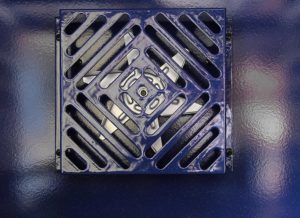
If you started asking yourself while reading the previous paragraph whether all ovens couldn’t technically be described as convection ovens since they all make use of convection, then you’re perfectly correct. Scientifically speaking, convection means nothing more than the thermodynamic process by which heat circulates around a space due to differences in temperature. It exists in every oven, as every oven, regardless of whether it includes a fan or not, will make use of convection currents to transfer heat through the air. However, a convection oven in particular makes the circulation of heat more intentional, if you will, by forcing it evenly throughout its interior via the fan. If it helps, you can call a convection oven a “forced” or “active” convection oven to contrast it from a regular, “passive” convection oven.
How does a convection oven affect cooking times and efficiency?
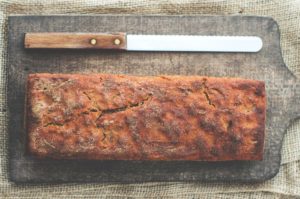
Convection ovens are particularly prized when it comes to baking, because the majority of them help you cook food in less time. Why? Because when the air inside your oven is actively (and not just passively) circulating, it will move heat more quickly to your food, which results in its baking more quickly; the more even circulation of heat also results in more even cooking.
How much time can you save with a convection oven, and do you need to adjust temperatures?

While the time differences will vary from one oven to the next, you typically can cut the cooking times from a conventional oven to a convection oven by around a third. In other words, a meal that would take 30 minutes to cook in a conventional oven will typically only take around 20 minutes in a convection oven. It’s also often a good idea to lower the oven temperature by around 25 degrees since the convection effect results in a hotter cooking experience. Of course, due to the variations between ovens and cooking modes, not to mention between recipes, you’ll be best off frequently checking whatever you’re cooking until you’ve got a firm grasp of how your oven handles it so you don’t over- or undercook whatever you’re making.
Which foods work well (and not so well) with convection ovens?

That said, a convection oven isn’t a magic cure-all for foods. While convection ovens excel for any food requiring roasting, including chickens, turkeys, ducks, and other birds and meats, it’s not the best choice for foods like breads, cakes, and cookies. The reason behind this is that convection ovens create a dry heat when blowing hot (very hot) air over whatever you’re cooking. If you’re looking for a spit-roasting experience with the safety and modern conveniences of a gas or electric oven, you’ll find it with a convection oven. But if you want to keep whatever you’re cooking humid, such as when baking bread or a cake, you’re going to do better if you bake such foods with the standing heat that comes from a regular oven and the increased humidity that accompanies it. The good news about convention ovens is that you can almost always turn them into conventional ovens (or go back and forth) with the flick of a switch; nearly all include switches to turn the convection fan on and off at will.
What are the best value mid-range convection ovens on the market today?
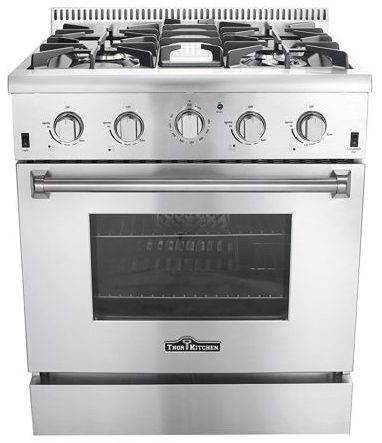
If you decide to buy a convection oven, which we highly recommend, given that you can use them as conventional ovens or as convection ovens whenever you choose, we suggest investing in models that provide a good blend of power, build quality, and customer support. If you’re on a budget, the Thor Kitchen HRG3080U 30″ gas range (reviewed here) is an excellent choice; it provides pro-grade power at middle-class prices. On a slightly larger budget, we recommend the Kucht KRG3080U 30″ gas range (reviewed here). While the build quality is identical to that of the Thor Kitchen, the Kucht equivalent comes with better customer service, resulting in a slightly higher price that’s well worth it in our books for long term reliability.
![]() You can buy the Thor Kitchen HRG3080U 30″ freestanding gas range here on Amazon or buy the Kucht KRG3080U range here instead for a little more money and a lot more customer support. If you use propane, get the Kucht KRG3080U/LP instead.
You can buy the Thor Kitchen HRG3080U 30″ freestanding gas range here on Amazon or buy the Kucht KRG3080U range here instead for a little more money and a lot more customer support. If you use propane, get the Kucht KRG3080U/LP instead.
![]() Canadians can buy the Thor Kitchen HRG3080U 30″ freestanding gas range here on Amazon or buy the Kucht KRG3080U range, which is cheaper, instead. Use propane? Buy the Kucht KRG3080U/LP here.
Canadians can buy the Thor Kitchen HRG3080U 30″ freestanding gas range here on Amazon or buy the Kucht KRG3080U range, which is cheaper, instead. Use propane? Buy the Kucht KRG3080U/LP here.
 If you find our research on PMC helpful, you can follow our efforts to keep maniacally reviewing home appliances by shopping through our links above. We promise to keep fighting the good fight against every horror children, animals, and grown, yet messy humans can inflict upon a clean home.
If you find our research on PMC helpful, you can follow our efforts to keep maniacally reviewing home appliances by shopping through our links above. We promise to keep fighting the good fight against every horror children, animals, and grown, yet messy humans can inflict upon a clean home.

